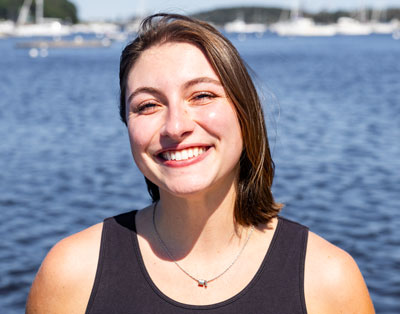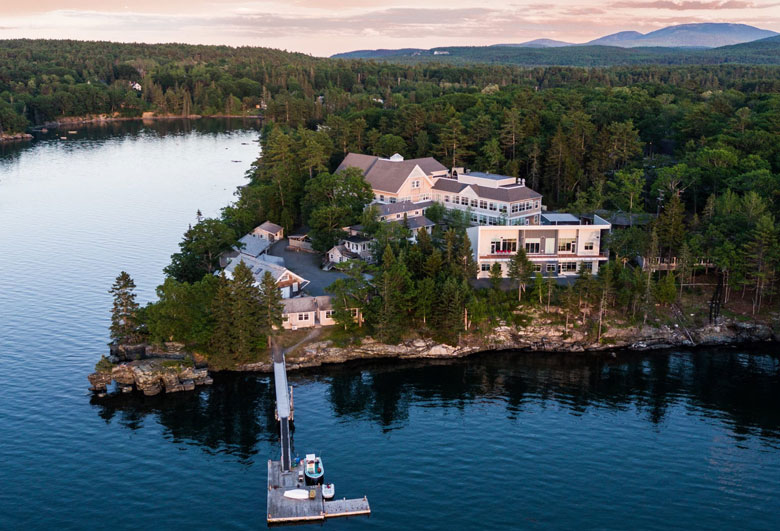How does water shape communities?
I think about this as I load onto the Sunbeam on my way to Frenchboro, an island community off the coast of Mount Desert Island. It is a beautiful blue-sky morning, deceivingly sunny for my weather app to be reading 20 degrees.
Working and living on an island puts water at the forefront of our minds. When is the ferry leaving? How will this storm impact us? What do the lobster stocks look like this year? With all the sea-related discourse, drinking water quality may not considered when we look at impacts to our communities.
As a first year Island Institute Fellow working with MDI Biological Laboratory in Bar Harbor, the primary focus of my Fellowship is to help a citizen science project and invite residents to participate in a statewide drinking water quality study.
Citizen science projects are conducted and informed by the general public, including and amplifying scientists and non-scientists alike in conducting research. As we work to gather water samples with the islands, our work is deeply embedded in community. And water, in all its varying forms.
The drinking water tests are focused on identifying metal contamination in wells and other drinking water sources.
While I live on MDI, most of my work takes place in the communities on Islesford, Great Cranberry, Frenchboro, Matinicus, Isle au Haut, and Swan’s Island. This regional nature of my Fellowship includes many partners working together to conduct drinking water quality research.
In addition to our most important partners, community members, MDI Biological Laboratories, and Island Institute also collaborate with Maine Seacoast Mission to facilitate logistics such as transportation to make this project accessible to unbridged islands. Furthermore, our lab collaborates with Dartmouth College to run the water samples and test for the almost 20 elements that our study focuses on. My Fellowship is, at its core, a team effort.
The drinking water tests are focused on identifying metal contamination in wells and other drinking water sources. This project was born from concerned community members approaching my advisor, Dr. Jane Disney, asking about arsenic in drinking water. Drinking water tests are especially important in a place like Maine due to naturally occurring contamination from the composition of bedrock that makes up much of New England.
This work may seem unusual for MDI Biological Lab, which is known for its animal model research on aging and regeneration. However, understanding environmental impacts on aging and regeneration, such as long-term exposure to contaminants in water, is a vital part of understanding the whole system being explored at the lab.

Outside of the laboratory setting, MDI Biological Lab is working to broaden the accessibility of tests to ensure safe drinking water for all of Maine.
In addition to working with community members, my Fellowship includes a school-based program called Communicating Data which teaches data literacy and science communication skills. These skills empower students in learning about their water systems and instill the confidence to share this information with others.
This winter, we recruited our first unbridged island school, Swan’s Island School, to participate in our project. I am excited for the upcoming school year to be in the classroom helping to facilitate water quality exploration. This type of community connection and involvement in science is tied to citizen science work.
The regional nature of my Fellowship has allowed me to meet new people and visit new places, traveling to various communities to conduct water tests and work with students. While this travel has been overwhelming at times, I have found comfort in the common threads of water and community.
So far, we have collected almost 40 water samples from unbridged islands and this number is expected to grow as seasonal residents move back to Maine. This enthusiasm and engagement are actively helping us paint the picture of drinking water on islands and along the coast. These communities and their willingness to participate in our water quality testing help inform this research process and create a feedback loop that allows us to ask and answer these questions together.
Morgan Karns works with the community lab at MDI Biological in a statewide initiative to test drinking water for heavy metals and plastics.





